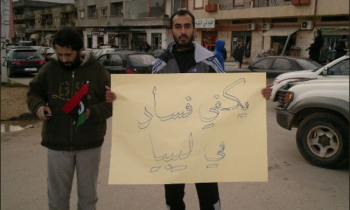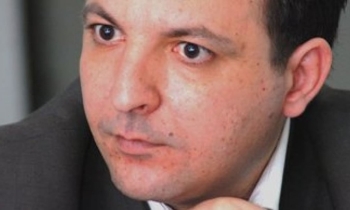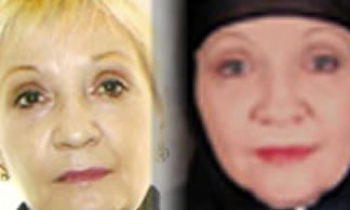China has finally freed a journalist after 16 years of imprisonment left him mentally impaired after being tortured and held for long periods in solitary confinement. Yu Dongyue, then 23, was jailed for splattering paint on a portrait of Mao Zedong during the 1989 pro-democracy protests in Tiananmen Square.

Yu Dongyue left prison N�1 in Hunan southern China on February 22 and was taken home to Shegang in Hunan, accompanied by his brother, Yu Xiyue. "He does not recognise me and we cannot understand one another," his brother told Reuters. "When I called him 'brother', he did not respond. I talked to him, but his responses were incomprehensible. I didn't understand what he said. He was just smiling at everyone."
Yu's mother, Wu Pinghua, 56, said by telephone local officials had told her that she should wait at her home in Shegang in the southern province of Hunan for her son's return. "He hasn't come home for 17 years. I'm very happy ... but he's mentally ill and it will be a burden to take care of him," she told Reuters.
"My last prison visit was in December 2004, and he couldn't tell who we were," she said. "The official said he now couldn't look after himself and needed spoonfeeding." Wu said that she had last seen her son a year ago. "He looked at me through the glass but didn't recognise me. He pushed the phone aside and wouldn't talk to me and just mumbled in some foreign language. He never called me 'Ma'."
Asked about Yu Dongyue's physical condition, his sister, Yu Rixia, told Radion Free Asia's Mandarin service: "His health is not very good. He cannot manage his own personal chores. The priority now is for him to adjust to the current situation and hope that his health can be gradually improved. He acts like a 3- or 4 year-old boy, and he can't take interviews," she said. "He has no logical thinking now."
Yu has very serious mental problems after spending at least six months in a cell measuring less than 3 metres square, followed by two years in solitary confinement. He was regularly tortured, Reporters sans Frontières (RSF) said.
"We are, of course, pleased to learn that Yu Dongyue is free. We hope he will be able to regain a little serenity in returning to his family," RSF said. "Yu's physical and psychological state demonstrates the full atrocity of the Chinese prison system, which destroys lives to gag dissident voices," it said, calling for the release of the 70 prisoners of opinion still in jail for taking part in the 1989 pro-democracy movement.
Journalist and art critic on Liuyang News, Yu was sentenced by the Beijing people's intermediate municipal court to 20 years in prison and five years loss of political rights on July 11, 1989 on charges of "sabotage" and "counter-revolutionary propaganda". On May 23, 1989, he and two others hurled egg shells full of red paint at Mao Zedong's portrait in Tiananmen Square. The three men were grabbed by angry students who turned them over to police. The students said they opposed vandalism.
Mao is still revered by many in China even though millions were purged or killed during the chaotic 1966-76 Cultural Revolution and about 30 million starved to death after he launched the Great Leap Forward campaign in 1958 and urged farmers to abandon their fields to make steel in backyard furnaces.
The authorities were also displeased with his articles in support of free expression and for his avant-garde opinions on artistic matters. Yu's sentence was reduced by two years in 2000 after he "sincerely expressed his repentance and his wish to re-educate himself" and a second time by 15 months in 2003. Despite repeated pleas by his family for his release "on medical grounds", the authorities decided in August 2005 to delay his release date to February 22, 2006.
"At this time of Yu Dongyue's release we urge the Chinese authorities once again to launch an independent investigation into the brutal crackdown on the pro-democracy movement of June 1989," said Corinna-Barbara Francis, East Asia researcher at Amnesty International. "The hundreds of victims have still not been given justice and the perpetrators must be charged and tried for their role in the killings and injuries."
It is unclear if Yu's case was connected to President Hu Jintao's visit to the United States, expected in April. China has in the past freed political prisoners ahead of major state visits. "This has absolutely nothing to do with Hu's visit," said John Kamm, director of the San Francisco-based Dui Hua Foundation, which helps secure the release of Chinese political prisoners.
Yu's two friends, Lu Decheng and Yu Zhijian, who were with him on May 23, 1989, had already been freed earlier.
Yu Zhijian, however, has just been rearrested for taking part in a rotating hungerstrike in support of a human rights lawyer being threatened by the government. His family has been informed of his arrest and the charge of "subversion" that has been made against him. He had been freed in March 2000 after 11 years in prison.
Lu Decheng, a former bus conductor, is currently being detained in Thailand where he had fled. He should be able to leave for Canada, on March 14, 2006, under a UN High Commissioner for Refugees (UNHCR) resettlement programme, despite repeated calls from the Chinese government for him to be returned to China.









